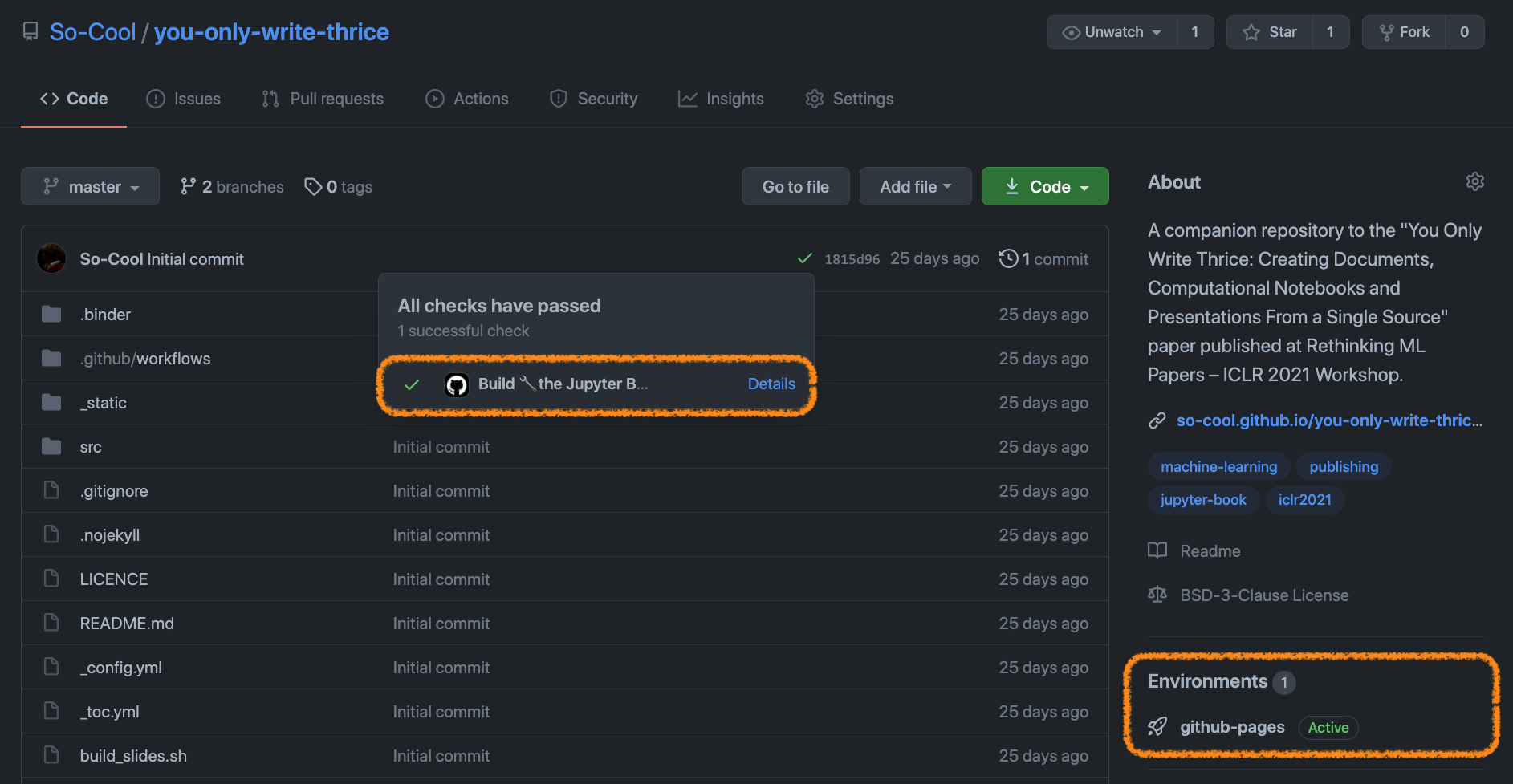You Only Write Thrice
Creating Documents, Computational Notebooks and Presentations From a Single Source

Kacper Sokol
and Peter Flach
Publishing Process
Stagnation
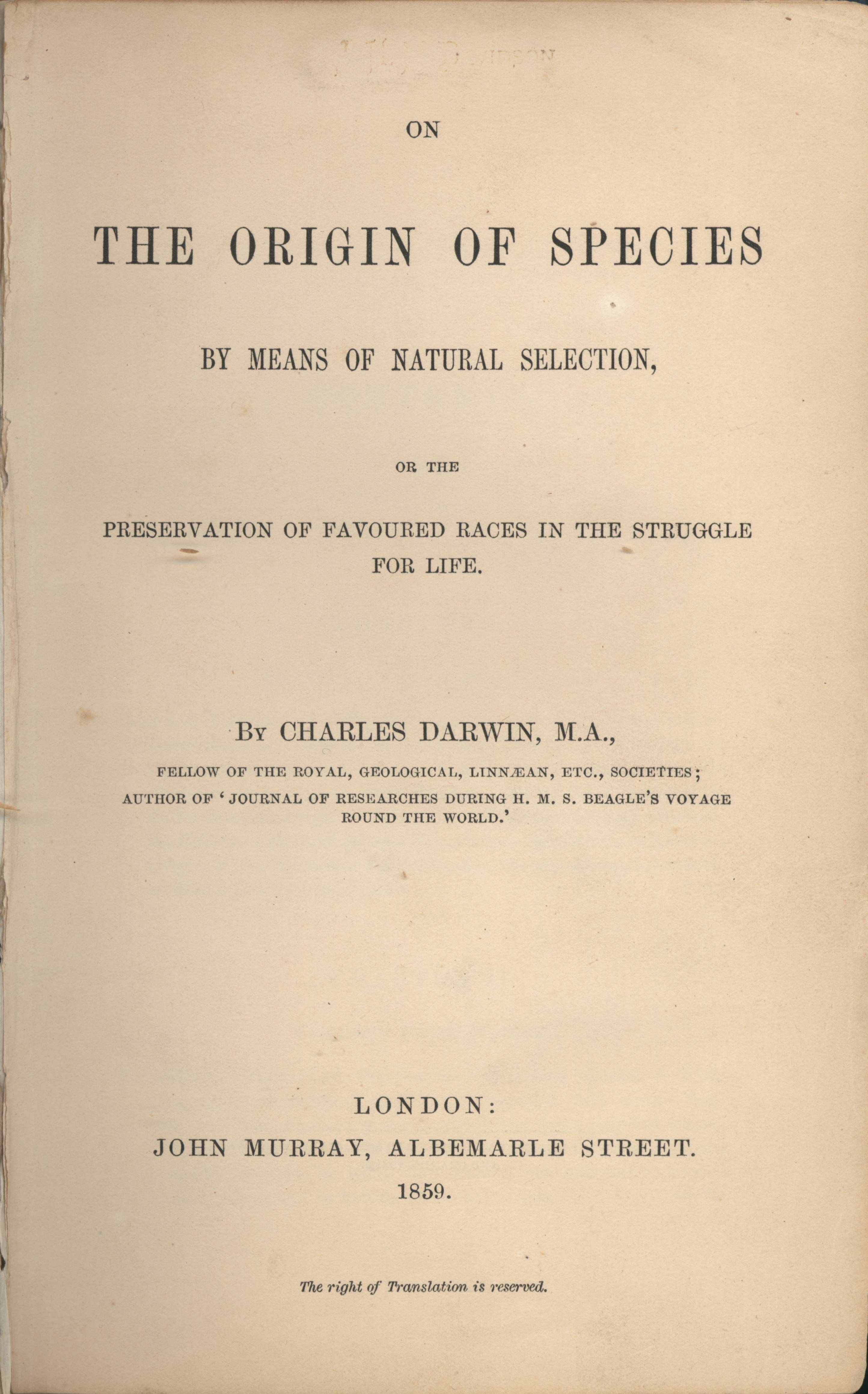
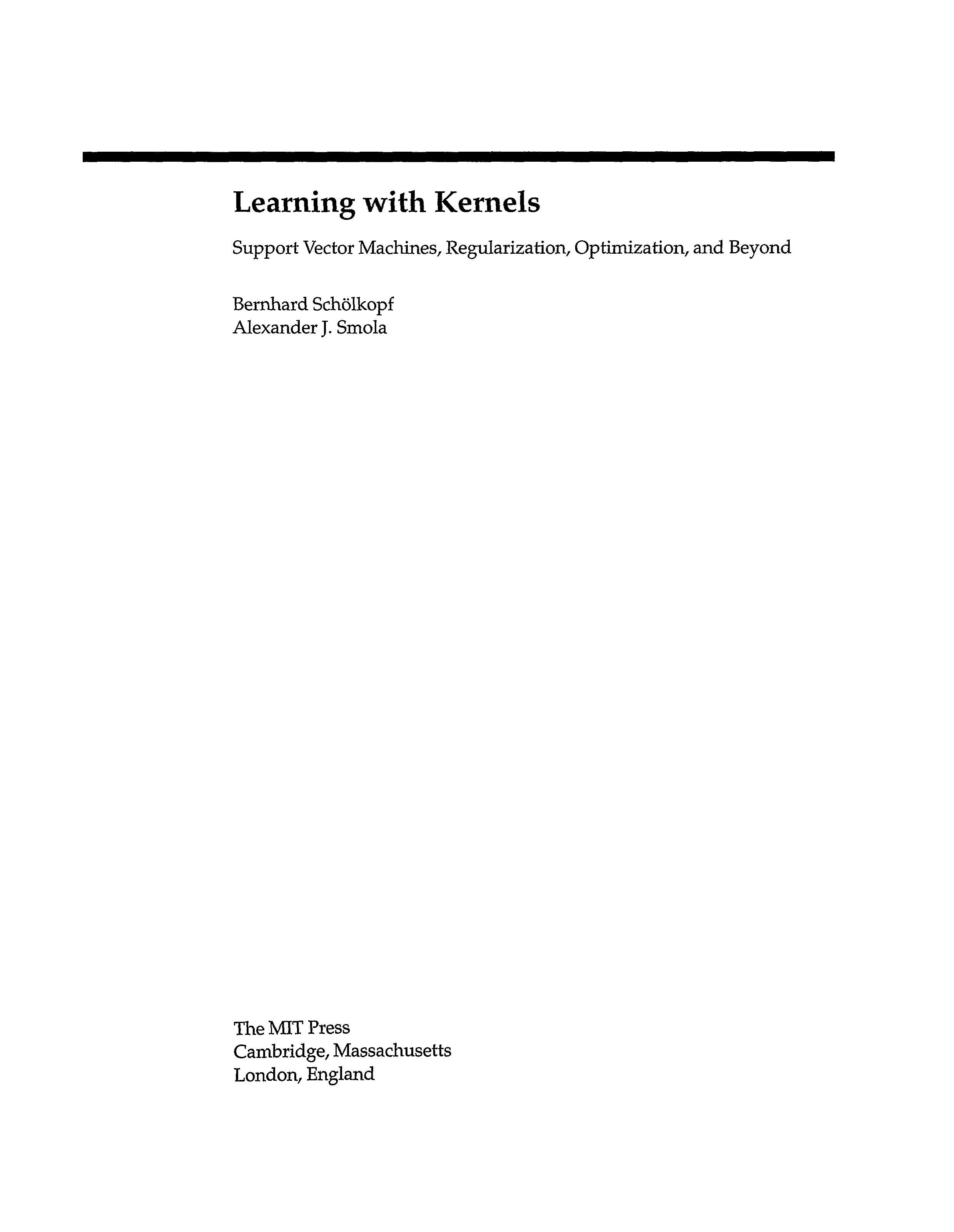
Ideas: distill.pub
In [4]:
preview_url(DISTILL, height=500)
Out[4]:
Ideas: OpenReview
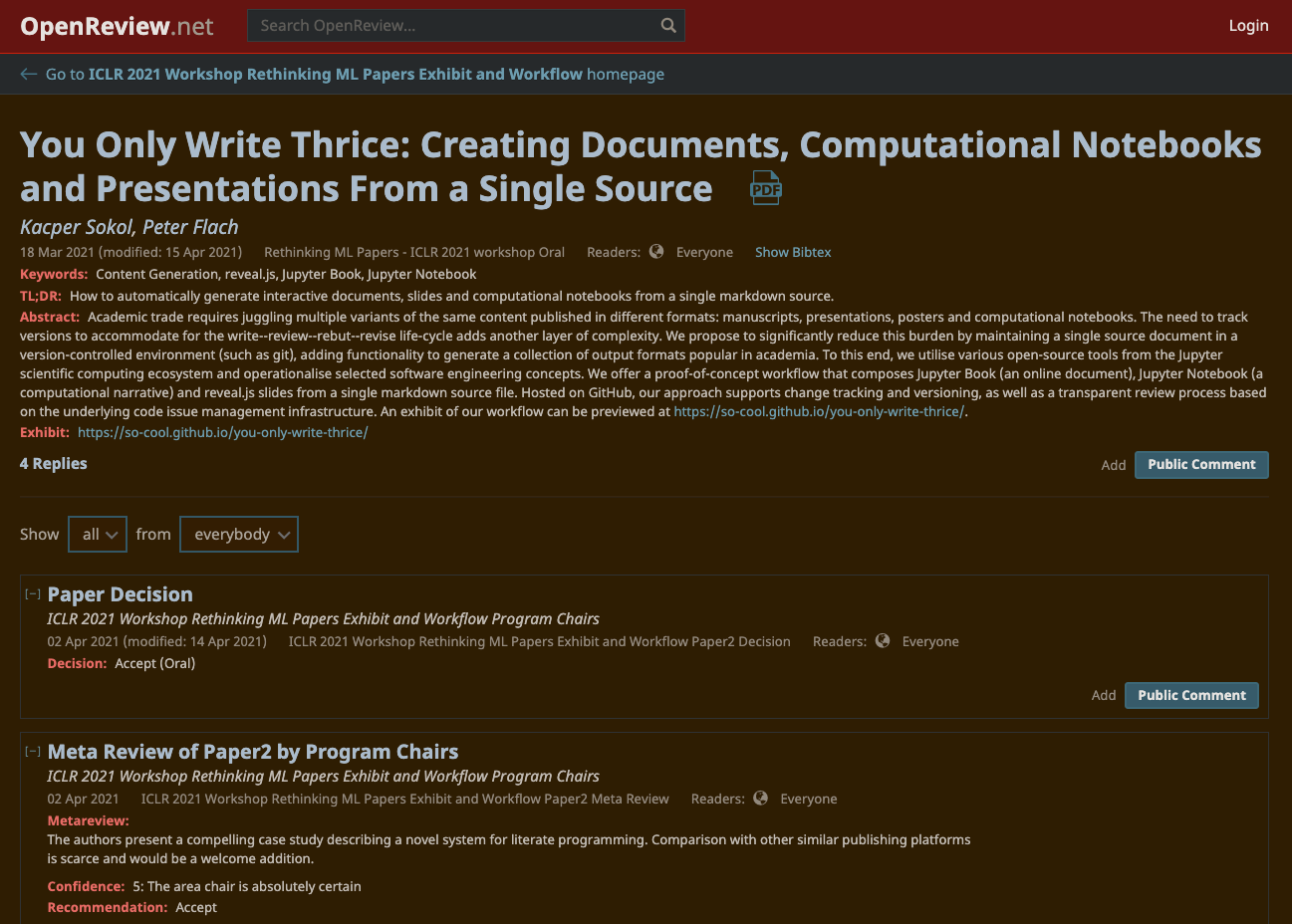
Ideas: The Open Journals (The Journal of Open Source Software)
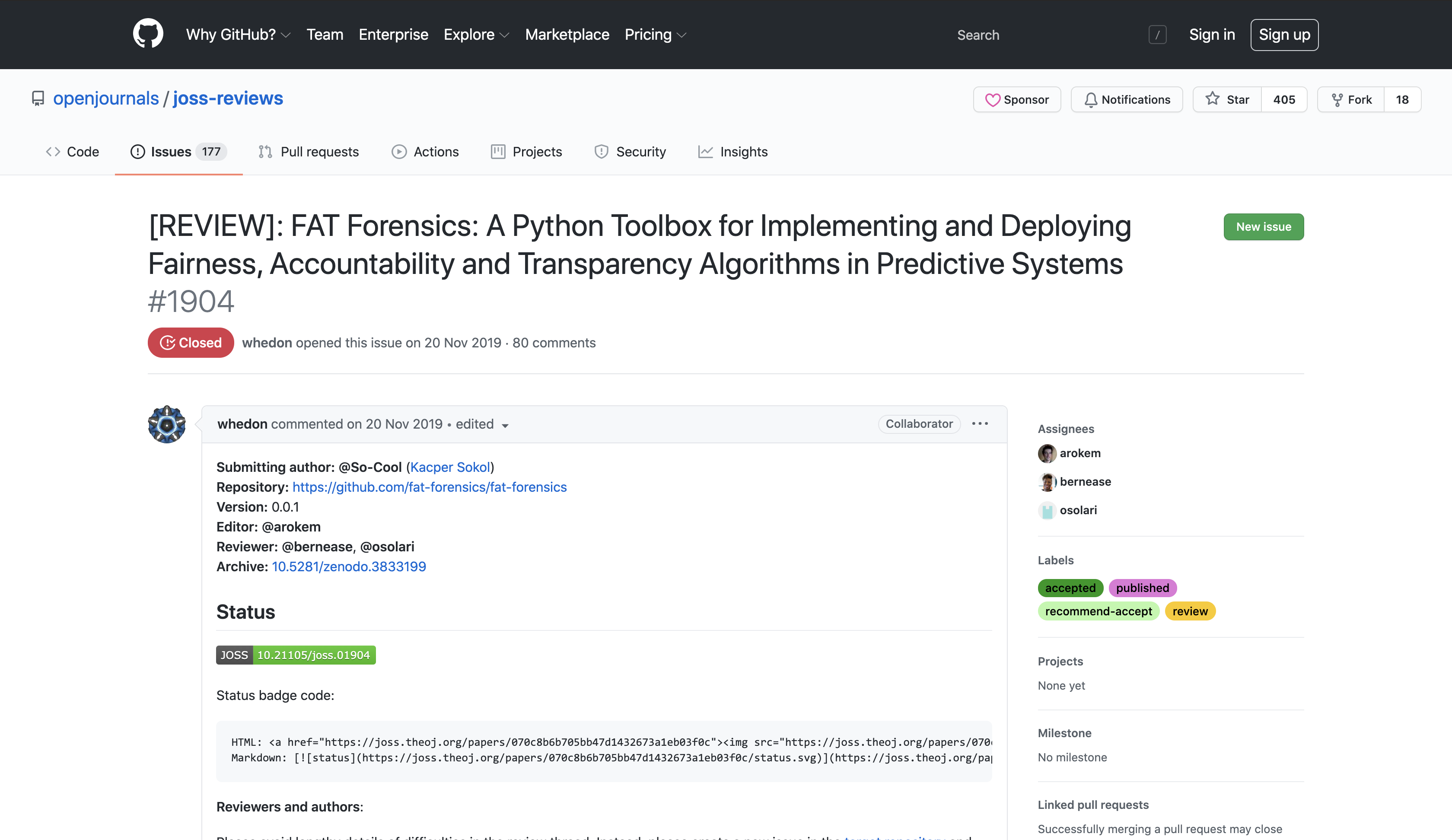
Issues
- Standalone tools
- Not integrated
- Lack of a dedicated process
- Not covering the entire publishing process
- Compose (write / revise)
- Review (comment / rebut)
- Publish (format / version)
Format Multiplicity
(Conference) Publishing
- Manuscripts
- Presentations
- Posters
- Promotional videos
- Press releases
- Blog posts
- Source code
- Computational examples
- ...
- Reviews
- Revisions
- Versions
Source Formats
- $\LaTeX$ documents and Beamer slides
- Microsoft Word / OpenOffice Writer / Google Docs
- Microsoft PowerPoint / OpenOffice Impress / Google Slides
- Markdown / HTML (and other web technologies such as JavaScript)
- Code hosted on Dropbox / GitHub / BitBucket
- Jupyter Notebooks / CodaLab documents
Lowest Common Denominator: Static Outputs and Artefacts
Artefacts reusability:
- visualisations / figures
- tables
- code snippets
- mathematical typesetting
enforces their simplest – often static – type
Towards Online and Interactive Research Outputs
Authoring
Multiple Entry Points – Single Source
MyST Markdown →
- Jupyter Notebook – computational narrative
- Google Colab
- MyBinder
- Reveal.JS – interactive slides
- Jupyter Book – interactive report/document/book
Version-controlled Environment
- Source versioning and history tracking
- E.g., git or mercurial
Reviewing
- Akin to source code review, e.g., through Issues and Pull Requests infrastructure
- Permanently attached to the document source
- Provenance record
- Resubmission history
- Conversational review with inline comments and discussions

Publishing
- Tag a version
- Release to an archiving platform
Bibliometrics
- DOI minting (e.g., Zenodo) to support citations
- Google Analytics-like dissemination tracking
Presenting
- Three formats: documents, slides and computational notebooks
- Native interactivity support
- Improved accessibility
- Execute directly in the browser – no need to install stuff
- Support for web-enabled assistive technologies
- Web technologies are the limit
In [5]:
interactive_plot()
The Way Forward
- Extend the Jupyter Book / Sphinx plugin ecosystem
- Support non-mainstream programming languages (SWI Prolog, ProbLog and cplint)
- Linked exercise and solution blocks
- Custom code syntax highlighting
- Bespoke publishing lifecycle platform (instead of GitHub or BitBucket)
- Compute resources suitable for hosting and executing the (interactive) content
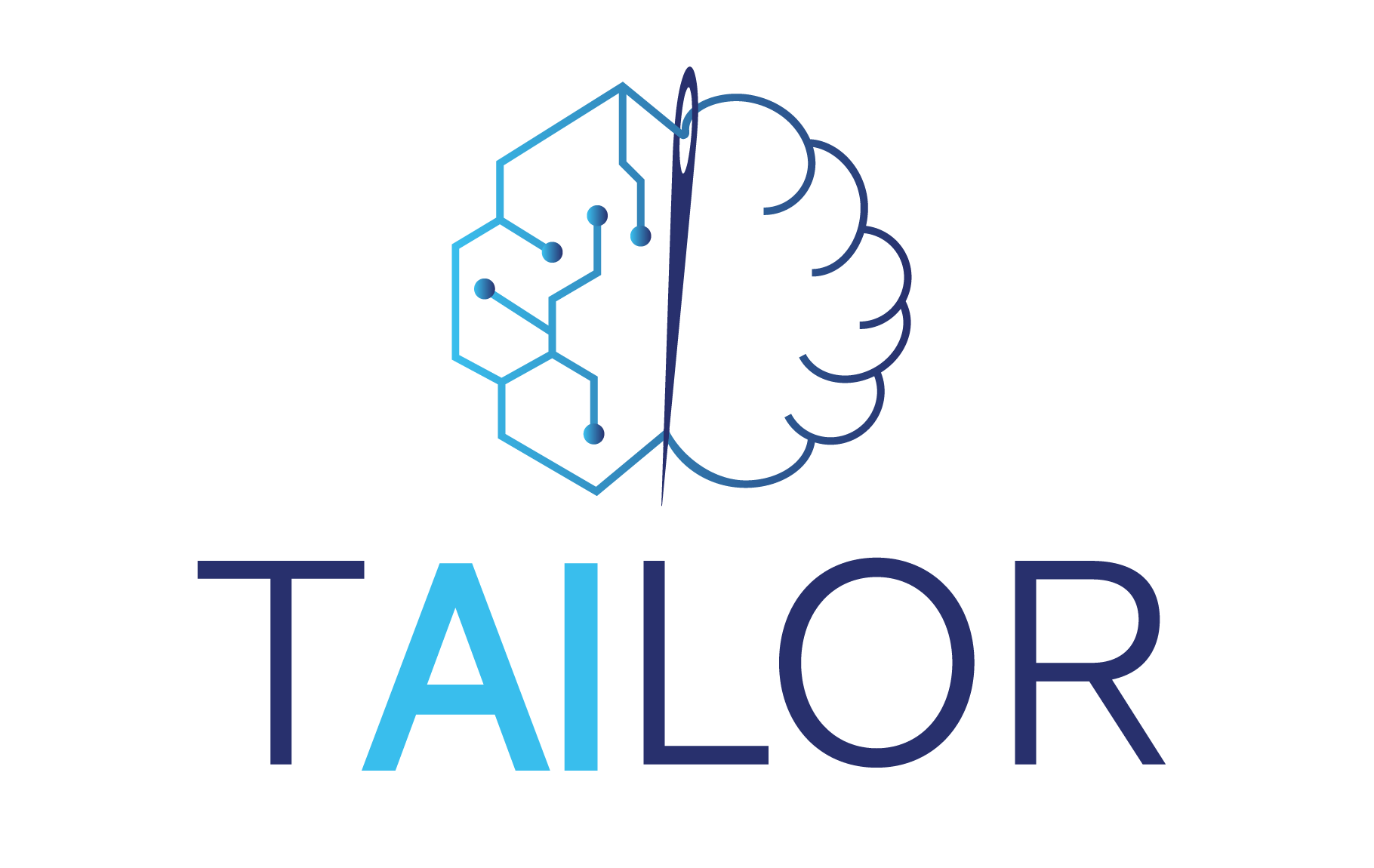
Horizon 2020 ICT-48 European AI excellence centre exploring new ways of working and AI-powered research and collaboration tools.
Exhibit
In [6]:
preview_url(YOU_ONLY_WRITE_THRICE, height=500)
Out[6]:
